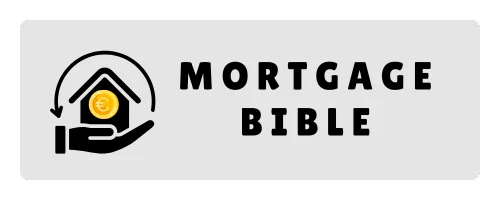Why Choose a Credit Union Mortgage?
When considering home financing, many borrowers overlook credit unions as an option. However, opting for a credit union mortgage offers distinct advantages that can make the home buying process more affordable and personalized. Credit unions operate as not-for-profit financial cooperatives, meaning their primary goal is to serve members rather than generate profit for shareholders.
Members often benefit from lower interest rates, reduced fees, and more flexible lending criteria compared to traditional banks. Additionally, because credit unions prioritize community and member relationships, they may provide more personalized customer service and support throughout the mortgage process.
Some key reasons borrowers prefer credit union mortgages include:
– Competitive interest rates that can lower monthly payments
– Lower or waived closing costs and fees
– More lenient qualification requirements for credit scores and income verification
– Access to financial education and counseling resources
– Local decision-making that can expedite approval processes
Understanding these benefits can help you determine if a credit union mortgage fits your financial goals and homeownership plans.
How to Qualify for a Credit Union Mortgage
Credit unions have unique membership requirements which you must meet before applying for a mortgage. Qualifying for both membership and the mortgage itself involves several key steps:
Membership Eligibility
Each credit union serves a defined field of membership. Common eligibility criteria include:
– Living or working in a specific geographic area
– Employment with a company partnered with the credit union
– Membership in certain organizations, churches, or unions
– Family ties to existing members
You can usually join by meeting one of these conditions and opening a savings account with a small deposit.
Mortgage Qualification Criteria
Once a member, qualifying for a mortgage generally involves:
– Credit Score: Most credit unions have minimum score requirements, often more flexible than banks. Scores in the 620+ range are commonly accepted.
– Income and Debt-to-Income Ratio: Income must be sufficient to cover mortgage payments. Typical DTI ratios are around 43% or lower.
– Down Payment: Credit unions often offer programs with down payments as low as 3%.
– Employment History: Steady employment or consistent income documentation is important.
It’s advisable to get pre-approved to understand what loan amount you qualify for and what documentation you’ll need.
Understanding Credit Union Mortgage Products
Credit unions offer a variety of mortgage products tailored to different buyer needs. Some popular options include:
– Fixed-Rate Mortgages: Stable interest rates and payments for the lifetime of the loan, usually 15 or 30 years. Ideal for buyers who value predictability.
– Adjustable-Rate Mortgages (ARMs): Lower initial rates that adjust periodically based on market indexes. Suitable for buyers planning to sell or refinance within a few years.
– FHA and VA Loans: Government-backed loans with lower down payment and credit requirements, often available through credit unions.
– Jumbo Loans: For properties that exceed conforming loan limits; some credit unions offer competitive jumbo loan options.
Many credit unions also offer specialized homebuyer assistance programs, including grants or reduced-rate loans for first-time buyers.
How Credit Unions Compare to Traditional Lenders
Despite sometimes higher loan limits at banks, credit unions typically have:
– Lower fees and closing costs, saving you hundreds or thousands upfront
– More personal communication with loan officers and underwriters
– Flexibility to work with borrowers who have challenged credit or unique income situations
Consider getting quotes from both credit unions and banks to compare savings and service.
The Application Process for a Credit Union Mortgage
Applying for a credit union mortgage involves several stages, similar to other lenders but often streamlined.
Pre-Approval
Start by submitting financial information such as proof of income, credit authorization, and employment verification. The credit union will evaluate your creditworthiness and provide a pre-approval letter stating the estimated loan amount.
Loan Application and Documentation
Once you find a property, formally apply with the credit union. You’ll need to supply:
– Recent pay stubs and tax returns
– Bank statements and financial asset information
– Details of debts and liabilities
– Property information and sales contract
Completing these documents accurately will help speed up processing.
Underwriting and Approval
The underwriter reviews all documentation for verification and risk assessment. Credit unions may be more flexible here by considering your relationship, history with the credit union, and community involvement.
Closing
Once approved, you’ll schedule a closing to sign loan documents, pay closing costs, and finalize the mortgage. Many credit unions arrange in-person or remote closings for convenience.
Tips for Getting the Best Credit Union Mortgage Rate
Securing the lowest possible mortgage rate with your credit union can reduce your costs significantly. Here are strategies to consider:
– Maintain a Strong Credit Score: Timely payments, low credit utilization, and minimal recent credit inquiries help boost your score before applying.
– Increase Your Down Payment: Larger down payments lower lender risk and may qualify you for lower rates.
– Shop Around: Obtain quotes from multiple credit unions and lenders for competitive loan terms.
– Consider Loan Terms: Shorter loan durations typically have lower interest rates, though monthly payments may be higher.
– Leverage Member Benefits: Some credit unions offer rate discounts for members with long-standing accounts or additional products like checking or savings accounts.
– Stay In Communication: Building a relationship with your loan officer can sometimes lead to more personalized loan options.
Common Challenges When Applying for Credit Union Mortgages
While credit union mortgages offer many advantages, borrowers may face specific hurdles:
– Membership Restrictions: Not everyone immediately qualifies to join a credit union, requiring research or connecting through family or employers.
– Limited Branch Access: Some credit unions operate regionally with fewer physical branches which can impact convenience.
– Smaller Loan Limits: Certain credit unions have caps on maximum loan amounts, especially for jumbo properties.
– Longer Funding Times: Smaller institutions may have fewer underwriting staff, possibly extending processing time during busy periods.
By preparing ahead, gathering documentation early, and communicating proactively, you can navigate these challenges smoothly.
Resources for First-Time Homebuyers
Many credit unions offer workshops, counseling, and online guides tailored to new homebuyers. Utilizing these resources can clarify the mortgage process and improve your readiness.
Visit the National Credit Union Administration’s website (https://www.ncua.gov) for additional information about credit unions and member benefits.
Maximizing the Value of Your Credit Union Mortgage
Beyond getting approved, you can use your credit union mortgage to enhance long-term financial health:
– Refinance Options: Keep an eye on interest rate trends and refinance through your credit union to reduce payments or loan term.
– Build Equity Wisely: Apply extra payments toward principal to pay off your home faster and build equity.
– Utilize Member Perks: Some credit unions offer home insurance or financial planning in combination with mortgages, adding value.
– Stay Engaged: Regularly review mortgage terms and account statements to ensure your loan continues to meet your needs.
Final Thoughts
A credit union mortgage can be an excellent path to homeownership with competitive rates, personalized service, and potential savings. Understanding membership requirements, loan products, and the application process equips you to make informed decisions. By proactively managing your credit and leveraging the benefits of your credit union, you enhance your chances of securing favorable mortgage terms.
Ready to explore your options? Contact your local credit union to discuss membership eligibility and mortgage opportunities or visit khmuhtadin.com to connect with expert guidance tailored to credit union mortgages.
Take the next step toward homeownership today with confidence in your credit union mortgage journey.




